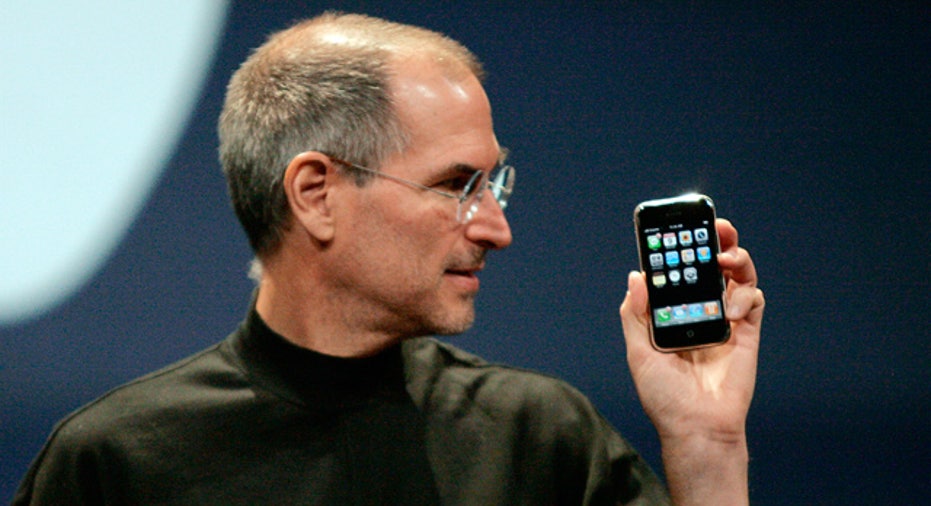What Steve Jobs Would Really Say About President Trump

As tech journalists find ever more creative ways of taunting Donald Trump, it was just a matter of time before someone evoked the hallowed name of Steve Jobs. In answer to the perennial question, “What would Steve (Jobs) do?” Recode’s Kara Swisher says, “He sure wouldn’t eat humble pie as the Trump era dawns.”
Maybe not, but it’s a mistake to assume that Jobs would have been against Trump’s business-friendly policies.
Having previously argued that leaders of Apple, Alphabet, Amazon, Facebook, Microsoft and other tech giants should have stood up for what they believe in and boycotted a December meeting at Trump Tower, Swisher now laments the end of Silicon Valley’s pirate era – a willingness to go rogue and fight the status quo.
There’s just one problem with that argument. It assumes those CEOs disagree with Trump’s economic agenda of reducing regulations, cutting taxes, improving trade deals, securing the border and bringing manufacturing jobs back to America. While I’m sure some do, I doubt if Jobs would have been among them.
According to Walter Isaacson’s biography of the iconic CEO, Jobs said that oppressive regulations, a broken immigration system and an antiquated education system “crippled by union work rules” made it impossible for him to build Apple’s products in America.
When they met in 2010, Jobs told President Obama that he was “headed for a one-term presidency” because his policies were not business friendly. He complained about the high cost of doing business here relative to China, and said he couldn’t possibly find the 30,000 engineers needed to staff a factory in the United States.
Jobs pushed the president on immigration reform that would grant visas to foreign-born graduates so they could remain here after obtaining engineering degrees. It made no sense to him that we would sacrifice coveted slots in our best universities, only to ship such in-demand workers back home.
While Trump’s immigration policy is focused on deporting criminals and keeping terrorists out, he has said that he supports immigration of highly skilled workers, as long as “those jobs are offered to American workers first” and not used as a “cheap labor program.” Makes sense to me.
That’s not all Jobs and Trump have in common. Jobs possessed an unshakeable belief that you could change the world or, as he famously told the first Macintosh team, “make a dent in the universe.” It was well-known among those who worked for him that the worst thing you could ever say to Jobs was “it can’t be done.”
After meeting with the president, it infuriated Jobs that Obama “kept explaining to us reasons why things can’t get done.”
Trump, on the other hand, actually believed that a real estate tycoon and reality TV star could somehow become the first American President with absolutely no political or military experience. Political pundits laughed at the notion … much like the tech pundits laughed at Apple’s plan to enter the cellphone market.
Meanwhile, Jobs’ hand-picked successor, Apple CEO Tim Cook, has long supported tax reform consistent with Trumponomics. Testifying before Congress in 2013, Cook lobbied for “dramatic simplification” to federal tax rules, a lower corporate tax rate and an even lower repatriation rate to bring overseas capital back.
And in a 2010 BusinessWeek cover story, How America Can Create Jobs, Grove – former Intel chairman and long-time mentor to Jobs – made a forceful argument for a nationalist trade policy and tariffs on imports to resurrect America’s manufacturing sector, which he considered critical to the health of the economy and the nation.
In addition to his business policies, one more thing about Obama disappointed Jobs: “He’s having trouble leading because he’s reluctant to offend people or piss them off,” he said. “Yes, that’s not a problem I ever had.” Nor has Trump.



















